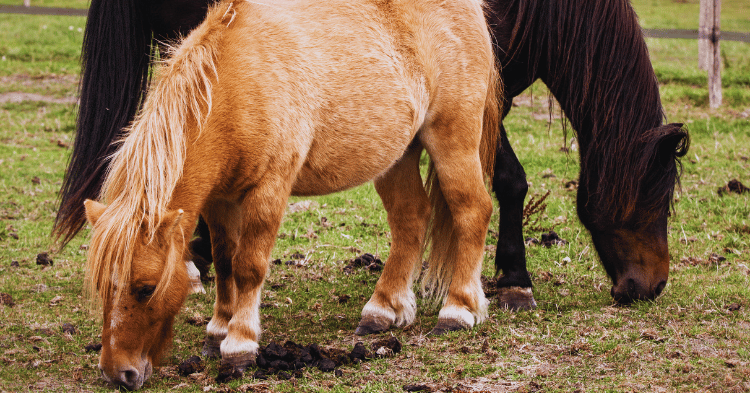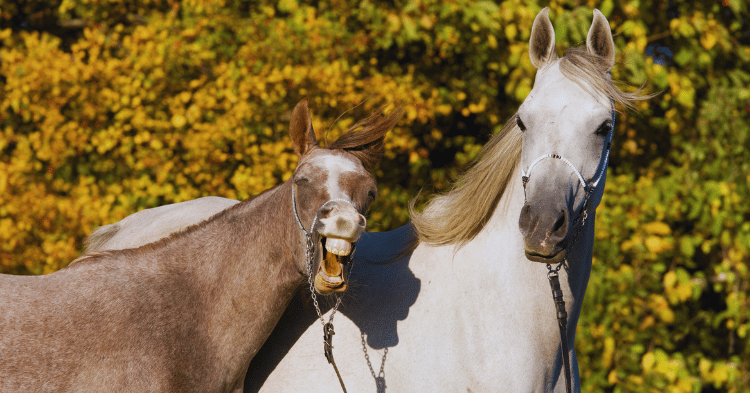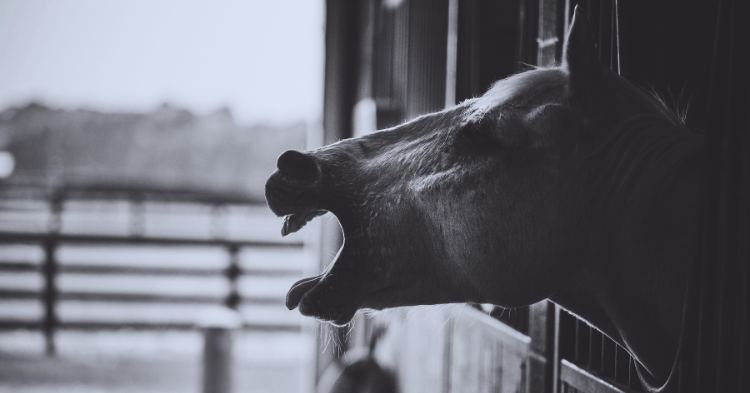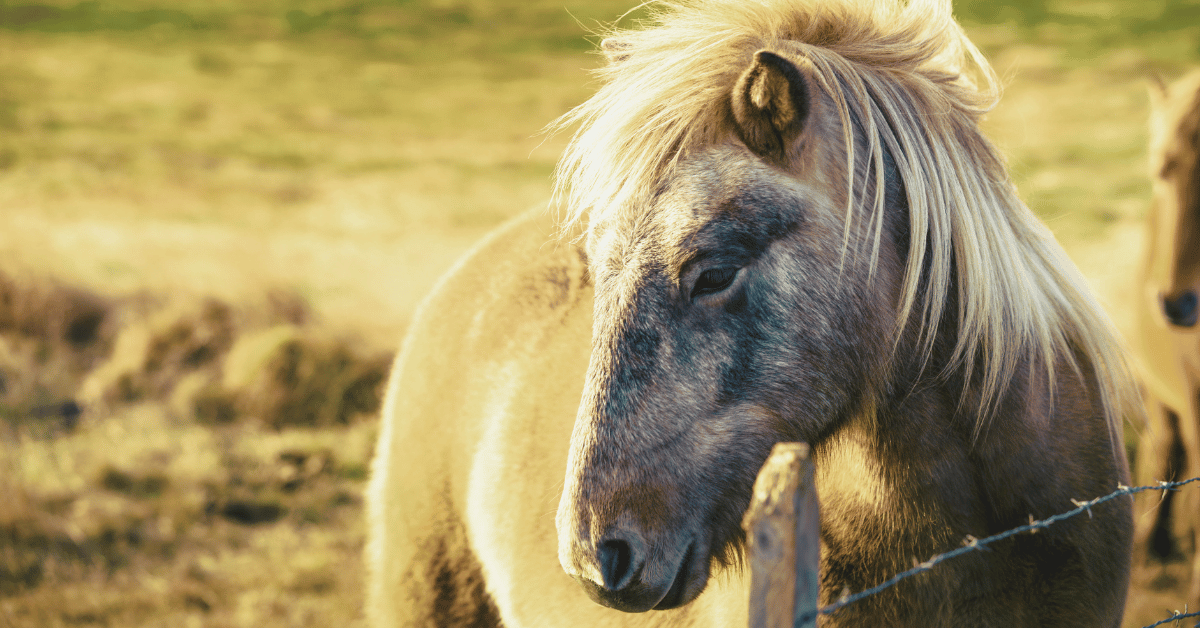How many years can you share with your beloved horse? It’s a question every horse owner or enthusiast wonders at some point. How long do horses live ? On average, horses have a lifespan of 25 to 30 years, but with advancements in care, many now thrive well into their 30s, and some even reach their 40s!
Of course, a horse’s lifespan depends on several factors, including breed, genetics, diet, exercise, and overall health management. Smaller breeds, like ponies, often outlive their larger counterparts, while workload and environment also play a role in longevity.
But here’s the thing—without proper dental care, joint maintenance, and nutrition, even the best genetics can lose the fight against time. By understanding what contributes to a long, healthy life, you can help your equine partner enjoy more years of joy and companionship. Let’s uncover the secrets to longevity for these incredible animals.
Factors Influencing Horse Lifespan
Understanding the factors that influence a horse’s lifespan is crucial for providing optimal care and ensuring a long, healthy life for your equine companion. Two primary factors are activity levels and the quality of early care.
Impact of Activity Levels
Activity plays a significant role in determining how long horses live. Horses are naturally designed to be in constant motion, ideally for around 22 hours a day. Confining them to a stall or limited turnout can negatively affect their health and longevity. Proper exercise helps maintain muscle tone, joint health, and overall vitality.
| Activity Level | Impact on Lifespan |
|---|---|
| High Activity | Promotes longevity; reduces risk of obesity and joint problems |
| Low Activity | Increases risk of health issues; shortens lifespan |
For more details on how fast horses can run and how high they can jump, visit our articles on how fast horse can run and how high can horse jump.
Importance of Early Care
The quality of care a horse receives during its early years significantly impacts its overall lifespan. Factors such as nutrition, handling, and medical management during foalhood are critical. Early diet should be balanced to ensure proper growth and development, laying the foundation for a healthy life. For instance, foals should not be ridden until they are at least four years old to prevent joint damage (Quora).
| Aspect of Early Care | Importance |
|---|---|
| Nutrition | Ensures proper growth and prevents developmental diseases |
| Handling and Education | Reduces stress and improves behavior |
| Medical Management | Early diagnosis and treatment of health issues |
To learn more about what horses eat and why they eat hay, check out our articles on what horses eat and why do horses eat hay.
By understanding and addressing the key factors that influence horse lifespan, such as activity levels and early care, owners can take proactive steps to ensure their horses lead long, healthy, and happy lives. For more information on why horses yawn and how to harness a horse, explore our articles on why do horses yawn and how to harness horse.
Lifespan of Different Horse Types

The lifespan of horses can vary widely depending on several factors, including whether they are domesticated or wild and their size, such as ponies. This section explores the average lifespan for different types of horses, providing valuable insights for those interested in understanding how long horses live.
Domesticated Horse Lifespan
Domesticated horses generally have a longer lifespan compared to their wild counterparts. With proper care, diet, and medical attention, domesticated horses can live between 25 to 30 years. Advances in veterinary care and a better understanding of equine nutrition have played significant roles in extending the lives of domestic horses.
| Horse Type | Average Lifespan (Years) |
|---|---|
| Domesticated Horse | 25 – 30 |
Factors contributing to the longevity of domesticated horses include regular veterinary check-ups, a balanced diet, and a controlled environment that minimizes stress and injury. Check out more about how horses are measured to understand their growth and care needs.
Lifespan of Wild Horses
Wild horses, like Mustangs, typically do not live as long as domesticated horses, with an average lifespan closer to 15 years. The harsh conditions, lack of medical care, and limited food supply in the wild contribute to their shorter lifespan.
| Horse Type | Average Lifespan (Years) |
|---|---|
| Wild Horse | 15 |
In the wild, horses face numerous challenges, including predators, harsh weather conditions, and competition for resources. These factors significantly impact their overall health and longevity.
Longevity of Ponies
Ponies often have longer lifespans than their larger counterparts, often living beyond 30 years and in some cases up to 35-40 years (Bay Area Equestrian Network). This extended lifespan is attributed to their smaller size and robust health.
| Horse Type | Average Lifespan (Years) |
|---|---|
| Pony | 30 – 40 |
Ponies are generally sturdy animals with fewer health issues compared to larger horse breeds. Their manageable size and diet, combined with proper care, contribute to their impressive longevity. Learn more about pony care and other interesting facts about how high a horse can jump given their size differences.
By understanding the lifespan of different horse types, owners can better appreciate the factors that contribute to their horse’s longevity. Interested in understanding more about breed impacts on horse lifespan? Explore our article on breeds with longer lifespans.
Key Elements for Longevity

Understanding the key elements that contribute to a horse’s longevity can help ensure they live a long, healthy, and happy life. Here, we explore the impact of genetic and environmental factors, the role of diet and exercise, and the maintenance of hoof and dental care.
Genetic and Environmental Factors
Genetics certainly play a role in determining how long horses live, but it’s not the only factor. Environmental conditions and appropriate early care can significantly impact a horse’s lifespan. Factors like appropriate diet, exercise, hoof care, dental care, and medical attention significantly improve a horse’s chances of living a long and healthy life, according to PetMD.
Environmental stress factors, such as relocating pastures or exposure to cold weather, can impact older horses. Providing adequate shelter and monitoring food intake can help alleviate these stresses, especially for senior horses (Kentucky Equine Research).
Role of Diet and Exercise
A balanced diet and regular exercise are crucial for the overall well-being of horses. The right balance of nutrients helps prevent diseases and keeps a horse strong and healthy, thus extending its life span (Bay Area Equestrian Network). Consider the specific needs of the horse when determining its diet. Frequent adjustments may be necessary based on changes in age, activity levels, and health conditions.
Nutritional Needs of Horses:
| Nutrient | Source | Importance |
|---|---|---|
| Proteins | Grains, legume hay | Muscle growth and repair |
| Fats | Vegetable oils, rice bran | Energy source |
| Fiber | Hay, grass | Digestive health |
| Vitamins | Carrots, leafy greens | Overall well-being |
| Minerals | Salt licks, mineral blocks | Bone and teeth health |
Regular exercise also plays a vital role. Ensuring that the horse gets enough physical activity can help to maintain cardiovascular health, muscular strength, and mental stimulation, which all contribute to a longer life.
Maintenance of Hoof and Dental Care
Maintaining a horse’s hoof and dental health is essential for preventing painful conditions and ensuring proper nutrition intake. Neglecting these aspects can lead to secondary health problems such as colic and lameness. Regular hoof trimming and proper shoeing are fundamental to prevent issues like laminitis and hoof cracks. Well-maintained hooves are essential for a horse’s overall mobility and comfort.
Good dental care is equally important. Horses need their teeth checked and floated regularly to prevent sharp edges and ensure they can chew their food properly. This helps in the proper digestion of their diet and prevents conditions that can lead to malnutrition and other complications (Bay Area Equestrian Network).
For more details on keeping horses healthy, explore topics like what horses eat, why do horses eat hay, and what vaccines do horses need.
By understanding and focusing on these key elements, horse owners can significantly influence their horses’ lifespans and ensure they live healthier, happier lives.
Health Considerations for Older Horses
As horses age, their health needs become more specific and require dedicated care. This section discusses key health considerations for older horses, including veterinary care and common health issues they may face.
Veterinary Care for Older Horses
Regular veterinary care is crucial for older horses to ensure they live healthy and comfortable lives. It includes vaccinations, annual exams, and monitoring for chronic conditions like PPID (Cushing’s Disease) and arthritis. These routine check-ups help in early detection and treatment of potential health issues, enhancing the horse’s quality of life.
Key Veterinary Care Components:
- Vaccinations: Protects against infectious diseases.
- Annual Exams: Identifies underlying health conditions.
- Diet Adjustments: Accounts for reduced dental effectiveness.
- Light Exercise: Prevents muscle loss.
- Regular Hoof Care: Maintains mobility and comfort.
- Dental Health Maintenance: Ensures proper nutrition and prevents painful conditions. Good dental care can significantly extend a horse’s life.
Common Health Issues in Aging Horses
Older horses are prone to certain health conditions that require careful management. Understanding these issues helps in providing the necessary care to maintain their well-being.
- Arthritis: Common in aging horses, causing stiffness and reduced mobility. Regular exercise and anti-inflammatory medications can help manage symptoms.
- PPID (Cushing’s Disease): A hormonal disorder leading to a shaggy coat, weight loss, and increased risk of infections. Managed through medications and proper diet (PetMD).
- Dental Problems: Older horses often have worn-down teeth which can lead to difficulty in chewing and poor nutrition. Regular dental check-ups and appropriate diet adjustments are essential.
- Colic: Remains a risk for older horses and can be life-threatening. Preventative measures include a high-fiber diet and monitoring for signs of gastrointestinal distress.
- Injuries: Despite the best care, older horses can be prone to injuries. Attentive management and a safe environment are critical to minimize risks (PetMD).
| Common Health Issues | Management Strategies |
|---|---|
| Arthritis | Light exercise, anti-inflammatory medications |
| PPID (Cushing’s Disease) | Medications, dietary adjustments |
| Dental Problems | Regular dental check-ups, diet modifications |
| Colic | High-fiber diet, monitoring for distress |
| Injuries | Safe environment, attentive management |
For more detailed information on how different factors impact how long horses live, visit our other sections on the lifespan of wild horses, the role of diet and exercise, and practical care for senior horses.
Providing comprehensive care for older horses aligns with understanding their overall health needs, ensuring they live longer, healthier lives. Regular veterinary check-ups and managing common health issues play a significant role in their well-being. For further insights, check out our article on what vaccines do horses need.
Breed Impacts on Lifespan

Breeds with Longer Lifespans
Different horse breeds vary in lifespan, with some tending to live longer than others. Generally, smaller breeds like ponies and Arabians are known for their longevity. Ponies, in particular, often live into their forties, far outliving their larger counterparts (PetMD). Among horses, it’s common to find that smaller breeds place less strain on their bodies, reducing the likelihood of early health issues (Bay Area Equestrian Network).
| Horse Breed | Average Lifespan |
|---|---|
| Ponies | 30-40+ years |
| Arabians | 25-35 years |
| Draft Horses | 20-25 years |
While genetics do play a role, ensuring a proper diet, regular exercise, and diligent hoof and dental care along with medical attention can significantly influence how long a horse lives. For deeper insight into how these factors contribute to longevity, visit our section on what horses eat.
Dental Care in Older Horses
Dental care becomes increasingly important as horses age. Older horses are prone to several dental issues such as severe tooth wear, gum disease, and missing teeth. Proper dental maintenance is crucial for their overall health and longevity.
Regular dental check-ups can help prevent many of these issues. For older horses, veterinarians often recommend annual or biannual dental exams. Proper dental care can help in maintaining their ability to chew food effectively, which is essential for nutrient absorption and overall well-being.
To manage the dental needs of older horses, the following practices are recommended:
- Annual Dental Exams: Ensure that the vet conducts thorough dental check-ups at least once a year.
- Diet Adjustments: Offer softened feeds or special senior equine feeds designed to be easier to chew.
- Monitor Eating Habits: Keep an eye out for changes in eating patterns and consult a vet if you notice any issues.
For specific dietary recommendations, visit our article on why do horses eat hay.
Proper care and attention to their dental health can help extend the lifespan of horses, ensuring they stay healthy and active well into their senior years.
Practical Care for Senior Horses
Taking care of senior horses requires special attention to their unique needs. The following sections cover practical tips and strategies to ensure the well-being of older equines.
Nutritional Needs of Geriatric Horses
As horses age, their dietary needs change. Geriatric horses often require a diet tailored to their reduced digestive efficiency and specific health concerns.
Protein Intake: Senior horses may need around 14% protein in their diet due to decreased protein absorption in the digestive tract. Adequate protein helps prevent muscle tissue wasting (Kentucky Equine Research).
Dental-Friendly Feed: As dental health declines, horses may struggle to chew fibrous feeds. Offering softer, easily digestible feeds such as soaked hay pellets or senior-specific horse feeds can aid in proper nutrition.
Regular Monitoring: It is crucial to monitor weight and adjust feed accordingly to maintain an ideal body condition. Consult with an equine nutritionist for personalized diet plans.
For more insights into horse feeding, visit our article on what horses eat.
Dental Care Recommendations
Dental problems are common in aging horses, making regular dental care a priority.
Biannual Dental Exams: Senior horses should have dental exams twice a year to check for issues like tooth loss, wear, and difficulty tearing grass (Kentucky Equine Research).
Float Teeth: Floating (filing down uneven surfaces) helps maintain a functional bite and ensures the horse can chew properly, which is essential for nutrient absorption.
Addressing Tooth Loss: Adjust the diet to ensure food is easy to eat and digest. Soaked beet pulp or complete feeds formulated for senior horses can be beneficial.
Explore more about the role of dental care in equine health with our article on dental care in older horses.
Managing Stress in Older Horses
Older horses are more sensitive to stress, which can impact their overall health.
Stable Environment: Minimize major changes in their routine and environment. Sudden moves or changes in herd dynamics can be stressful.
Adequate Shelter: Provide shelter to protect against harsh weather. Cold weather can be particularly challenging for senior horses.
Monitor Food Intake: Ensure senior horses have access to food without competition from younger, more dominant horses (PetMD).
Light Exercise: Engage in light, regular exercise to promote muscle tone and overall health. Avoid strenuous activities that could cause undue stress or injury.
Learn more about how to manage and reduce stress with our guide on managing stress in older horses.
By focusing on proper nutrition, dental care, and stress management, owners can greatly enhance the quality of life for their senior horses. For additional resources, explore our articles on how to harness horse and why do horses eat hay.

